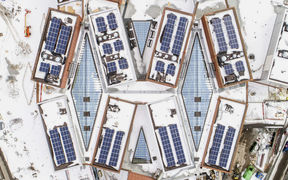About us
Sustainable campus

We operate the campus sustainably and by taking the lifecycle of the buildings, the outdoor areas of the campus and the campus users into consideration. Central to our goals is to reduce the carbon footprint of the campus and to improve its energy efficiency in connection to our modification, renovation and construction projects and development of the campus services.
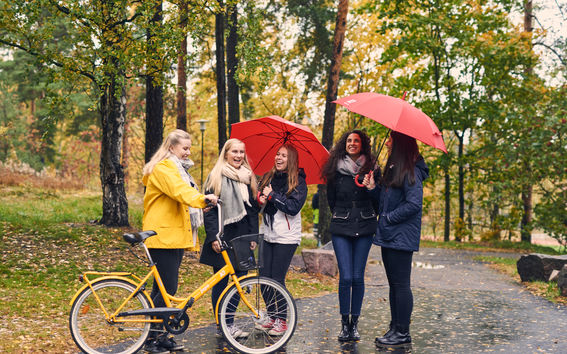
Carbon neutral by 2030
ACRE will start a new operational programme with the aim of becoming carbon neutral by 2030. The measures for reaching this goal include
- Improving the energy efficiency of buildings
- Promoting a circular economy for energy (waste heat recovery)
- Developing our own low-carbon energy systems
- Low-carbon construction and renovation projects
In addition, we aim to promote pedestrian traffic and other non-motorised transport and electric vehicles in the campus area.
The concrete measures and KPIs for achieving carbon neutrality will be separately defined when the plan for an energy self-sufficient Otaniemi is updated and the plan for implementation is completed. The measures will be specified regularly, and the plan updated when necessary.
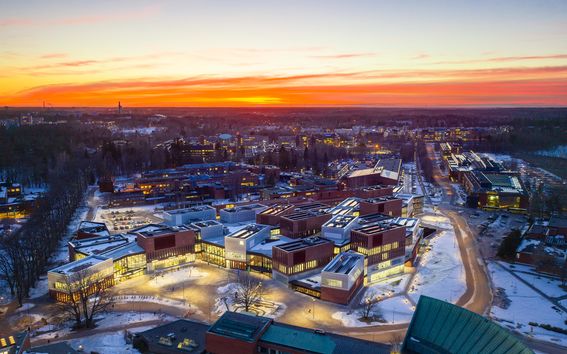
Sustainable Campus team
The main task of the Sustainable Campus team, comprising representatives of different functions of the Aalto community, is to promote ecological, social and economic sustainability. In addition to aiming for carbon neutrality, the team’s goal is to improve the natural capital and leisure options in the area. The Sustainable Campus team’s communications tasks include
- Participating in the international Earth Hour event and the national Energy Awareness Week
- Organising the annual Aalto University Sustainability Champion competition
- Increasing awareness on sustainability and connecting it to the lives of all campus users
- Increasing participation in the campus and communicating achievements related to sustainability

User-oriented projects
User-oriented projects have been planned and implemented as practical measures to promote a sustainable campus. The projects have been related to, for example, the circular economy and procurement, energy solutions, leisure opportunities in the campus area and user well-being. As the administrator of the university’s properties, ACRE is committed to closely working together with stakeholders in all operations from property development to maintenance and leasing.
Feedback collected with an annual user satisfaction survey is used to steer our operations, for example, via participation in joint projects and student projects. The projects can be related to developing the services in the campus area or improving the energy efficiency of buildings, for example. One of the cornerstones of our operations is preserving the value and functionality of our properties, many of which are significant in terms of cultural history.
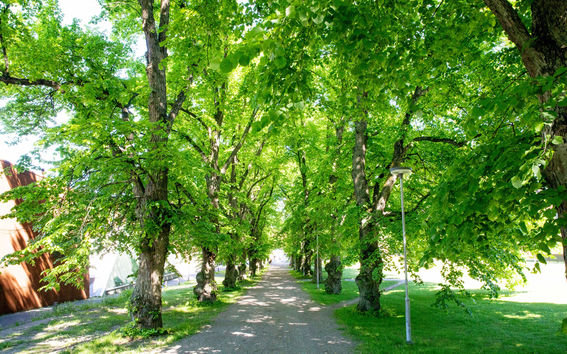
Outdoor areas
Outdoor areas are one of the most important development areas in the near future. Unique greenness has been recognized as a value and attraction factor of the campus environment. The aim is to strengthen the identity of the forest campus, create places for people to hang around and also enable a different kind of outdoor activities. High-class plazas, parks and sports areas enable encounters for people, ideas and communities. Wild nature areas will still be left nearby campus buildings for people to calm and refresh.
High-quality urban spaces, nearby forests and access routes create a distinctive and comfortable environment which attracts a different kind of experts, operators and university external users. Outdoor areas play a key role to make campus more competitive and sustainable.
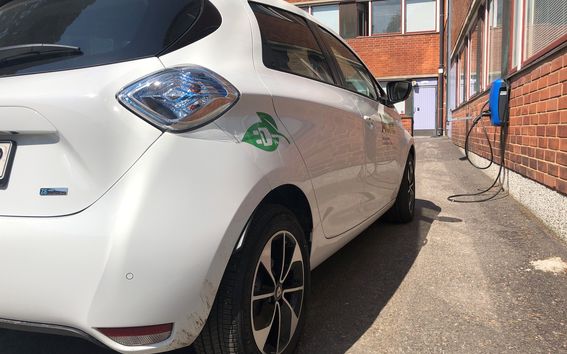
Sustainable mobility on campus
The more compact campus structure supports sustainable mobility on campus. It is also possible to make an impact by ensuring good accessibility of public transport and light transport routes. On Otaniemi campus there are campus bicycles for staff borrowed by the university, HSL city bikes and two comprehensive bicycle service points. Light transport is also encouraged by investing in the shower and changing rooms, as well as storing bikes during the working day.
The development of electronic transport on campus is one of the priorities for the future. Research and development work is being carried out on campus in connection with electronic mobility, including robot cars and charging electric cars (KotiCharge EV pilot, Smart Otaniemi project and robot buses in Otaniemi (e.g. Sohjoa project 2016).
A campus geared for sustainable development - aalto.fi
The key environmental impacts of campuses are related to energy consumption, transport and recycling. A campus operating in line with the principles of sustainable development is a key part of the University's campus strategy.
